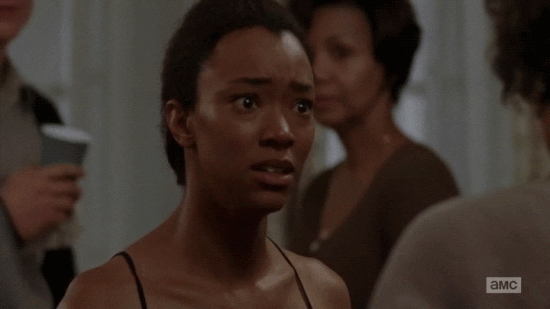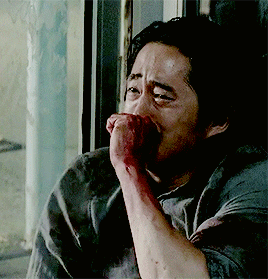Being diagnosed with a chronic neurological illness can be vindication after years of countless specialist visits, tests and research.

Source: http://giphy.com
Yet, there is a still a type of bereavement period that can happen, whether it’s within the first 10 minutes of hearing the diagnosis, or over a much longer period of time.
1. Shock/Surprise

It could be the shock over finally getting an answer, or surprise that your new journey is one of treatment and coping, as opposed to searching. My exact words were “You said negative right?”
To which the doctor responded, “I said the results were unequivocally positive.”
Incredulously, I requested to see the results myself. Then I Googled how to read the results. You know. Just to be sure.
2. Denial

Source: http://giphy.com
Cue fetal position and depressing movie time. Or, if your stage of denial is brief, you might just have an inner temper tantrum of reasons why you don’t have this disease, going something like, “There is no way I have been walking around this whole time with a neurological disease. I am so healthy. My family history is normal, I barely drink, never smoke, and my diet is even pretty good. NOPE!”
3. Anger

Negative emotions are rarely pleasant, but in hindsight for me, this was the first stage toward acknowledgement of my POTS and chronic, late-stage Lyme Disease.
4. Bargaining/Convincing

I remember thinking “I have all of these old test results that say I am not sick. Maybe, I can convince this new, thorough doctor that I don’t have a chronic neurological disease and that I am perfectly fine. Because I want to be perfectly fine.”
5. Depression

After realizing your doctors are right (for what seems like the only time), and that this diagnosis is out of your control, thoughts of hopelessness and sadness might set in. They might last a few minutes or much longer than that, with great frequency.
6. Acceptance

You’re there. You now know what you’re dealing with. Finally, you can take a rest from the searching and instead, start strategizing with your doctor on the best treatment plan for you.
Go ahead. Give yourself a high-five.

Because you’re now choosing to accept, manage and treat your neurological disease the best you and your team of doctors know how. And that takes real moxie.






